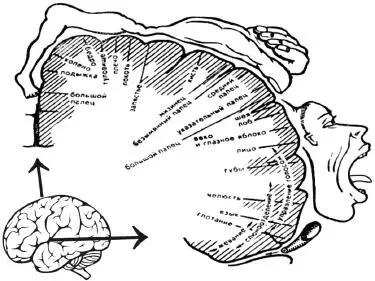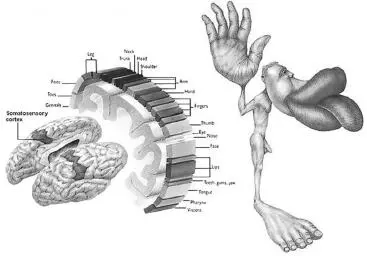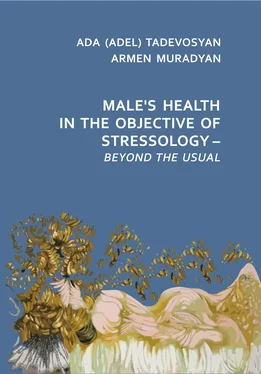Libido, sexuality, sex – is a chain of linguistic concepts reflecting links of a single biological function, the genetic program of which is realization of the reproductive instinct with the purpose of procreation, pleasure and stress relief.
Sexual arousal and its satisfaction occupy a completely special central place among other affective states in the psychological experience of human, especially of male. It is impossible to study and understand sexuality at some particular stage of research in isolation from the context, the psychological world of the individual, social and cultural world of the society and the evolution. Due to the dominating in the medieval Europe attitude towards manifestations of sexuality as a grave sin, the development of sexology for a long time turned out impossible. At that time the human body was considered as a source of “dirty” lusts and desires, and sexuality, love – as a sin between man and woman.
Among all pioneers and founders of the scientific study of sexuality, the most well-known figure is, of course, Sigmund Freud. It was Freud who first drew public’s attention to the role of sexual and sexuality on the whole in the personal life of man, his development, peculiarities and inclinations, his life together with other people. He, considering sexuality as a basis of human existence understood it otherwise than representatives of the science of that time, the community of the past and present. He has changed the concept of “sexual”, having separated first of all sexuality from too close association with the genitals, regarding it as a more general bodily function having the aim of pleasure and only indirectly serving the purpose of reproduction. He clearly distinguished between the concepts of “sexual” and “sex”. The first concept is much broader and includes many manifestations having nothing to do with the genitals. According to Freud, the sexual life (not sex) does not begin with the onset of puberty but shortly after birth and includes a function of obtaining pleasure from the various areas of the body; the function, which was subsequently used by the body for the purpose of reproduction.
In the course of his further research and therapeutic activities, Freud specified his initial ideas about the prevailing principle of regulating mental activity and correlated it with the “principle of pleasure/displeasure”, which was considered by him as the “economic principle” of functioning of the psyche. In the article “The formulation of the two principles of mental activity” (1911) he wrote: “Apparently, there is a general tendency of our mental apparatus, which can be attributed to the economic principle of conservation: it is revealed in the stubborn clinging to its available sources of pleasure and difficulties in denial of the latter”.
In the opinion of Freud and his followers, the manifestation of sexuality in a child is the pleasure of the excitement experienced by the infant from the mother’s caresses, from the pleasant sensations of the contact with those who care about it. It is this diffuse “excitement” of the skin that Freud and his followers viewed as children’s sexuality. Henceforth its erogenic zones, later cognitively imprinted sexual notions and, finally, the development of unconscious fantasies were described. All these components of sexuality are connected by the intense affect of pleasure and enjoyment activated since infancy, as psychoanalysts considered, and reaching its culmination in the form of cognitive-affective experience. If we move away from the theory of “unconscious sexuality”, discovered by Freud, another viewpoint is possible, namely: caresses as a soothing excitement, most likely, relieve anxiety, alarm. If we estimate this governing principle in newborns by neurophysiological mechanisms, it is more likely that the feeling of “pleasure-displeasure” is an analog of the reaction of deadaptation – adaptation in the form of unconscious primary GAS phase – alarm phase. As we remember, GAS has a discrete character in the form of automatic activation of neuronic sympatho/parasympathetic axis. These fluctuations of the psyche resemble ocean tides on the earth. The world is universal and man has absorbed the laws of the Universe. Replacement of an unpleasant feeling by a pleasant one is carried out by motor acts – kinetics, the set of which is limited. The same movements are used to achieve different goals, and this shows the economic principle of functioning. Already in the early stages of development there is a polymodality of functions. For example: sucking reflex – a life reflex fulfills several functions: satisfaction of hunger (a mechanism for satisfying the food instinct), soothing (“saving pacifier”), obtaining pleasure and the way of the world primary cognition. The kid makes use of the mouth pulling into it everything at first indiscriminately, gradually – only a new toy. This reflects one of the laws of psychophysiology – the law of economy, when one and the same function has several purposes, the number of which increases as the child gets older and as the system of psychosocial adaptation develops together with the development of the social “instincts”.
Canadian neurologist W. Penfield drew a funny man – a homunculus with a huge tongue and lips, big thumbs and toes and small hands, legs and body. This was the first map of “functions and semiotics of lesions”.
In the end, a surrealistic portrait emerged, where the human body was stretched across the surface of the brain.

W. Penfield. “Sensitive homunculus”.
Homunculus is a symbolic representation of motor and sensory zones in the cerebral cortex.
Homunculus has abnormally big hands, fingers, genitals, lips and tongue (and the head as a whole), since these parts are used constantly, from day to day. There is a match between the frequency of functioning and the size of the region in the sensory cortex, responsible for this activity. The more benefits – the greater the area in the sensory cortex.

Homunculus. Somatosensory cortex.
We do love kissing because “the mouth has a large representation in the cortex” and through kisses, touching lips, the subjective world of man, his psychosocial mechanisms of psychological protection and social models of behavior are created in many respects.
Children show a natural interest in their bodies including the genitals, notice anatomical differences between men and women and often play with their genitals. But before they tackle their genitals, which they have to reach, babies first suck their hands, then start playing with legs, trying to shove them into the mouth, drag diapers, suck them, and only when you start to teach them to the pot they detect their genitals, playing with them – reveal “pleasantness”. The latter is usually regarded by adults as masturbation, though it is not. Finding relationship between genitals and “pleasantness” many children are involved in “sexual games”, usually with their friends, brothers or sisters. “Sexual games” include nudity and study of sexual organs of each other. Most likely Freud and his followers were in power of stereotypes of interpreting the behavior of an adult and were led on their string. Baby’s movements were regarded similar to the sexual body movements of an adult (masturbation) and identified them as a manifestation of infantile sexuality. Another misconception is to interpret the seen through the prism of personal experience. The baby’s genitals have not yet been formed, the sexual instinct has not yet been woken up – and the child is already “having sex” masturbating. Freud solved this inconsistency and riddle attributing “sexuality” of this period to the unconscious. So unconscious was discovered, which in the initial stages subjugated the entire human psyche, because it seemed to open the universal core of human personality – the unconscious field in which the sexual instinct “calls the tune”.
Читать дальше














